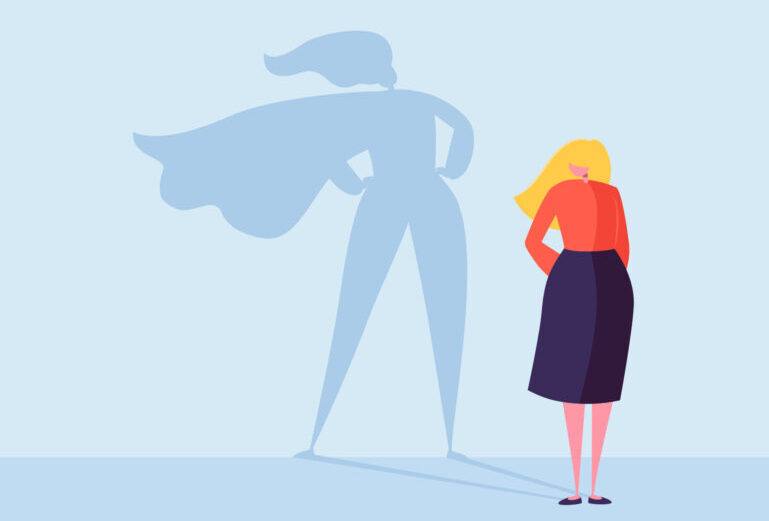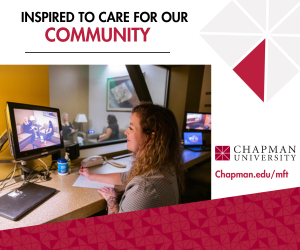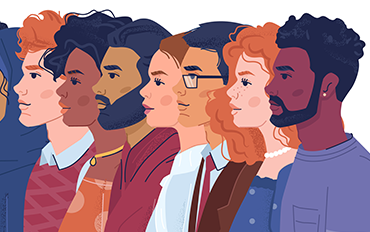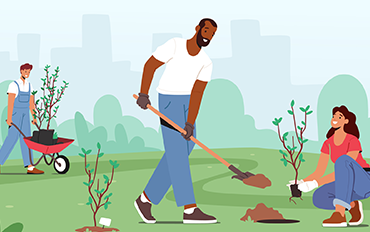Social media is flooded with videos of people—men, women, and those who are gender-fluid—explaining how they use micro feminism to challenge gender inequality in their personal lives. While you might not be familiar with the term “micro feminism,” chances are, you’ve observed or participated in the undoing of gender biases more often than you realize. Micro feminism recently emerged organically through social media discussions when people began exploring small acts of resistance to confront noticeable daily gender inequalities. This practice highlights the significance of taking a stance—even if on a smaller scale—to challenge the biases that continue to be strongly connected to traditional gender roles.
As a marriage and family therapist (MFT) female in academia, I am no stranger to displays of sexism and misogyny in the workplace. Many women who are in a position of leadership, including myself, often find themselves having to manage the additional labor that falls outside of their job descriptions. Throughout the literature, the issue of gender has been approached from several lenses. One of them is that women are indeed expected to be more caring around their peers and students at work (França et al., 2023; Pereira, 2017). These expectations might contribute to how women experience additional pressures to be available at short notice, to manage their personal and professional lives without much credit, and to engage in emotional labor that adds to the list of invisible work we do.
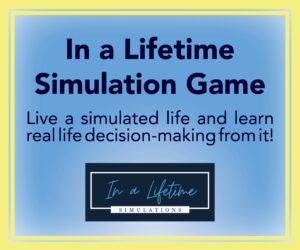 Emotional labor is not something that gets acknowledged as part of an academe’s role. Hochschild (2012) was one of the first scholars to describe emotional labor as the process of managing one’s own emotions or the emotions of others to fulfill the requirements of a job or a social role. These expectations tend to be disproportionately placed on women—especially when associated with traditional gender roles that are not exempt from academic circles. In other words, emotional labor is a form of unpaid work heavily performed by women in the workplace (Ashforth & Humphrey, 1993).
Emotional labor is not something that gets acknowledged as part of an academe’s role. Hochschild (2012) was one of the first scholars to describe emotional labor as the process of managing one’s own emotions or the emotions of others to fulfill the requirements of a job or a social role. These expectations tend to be disproportionately placed on women—especially when associated with traditional gender roles that are not exempt from academic circles. In other words, emotional labor is a form of unpaid work heavily performed by women in the workplace (Ashforth & Humphrey, 1993).

Although in the field of MFT there is a strong push to explore diversity and social justice issues in clinical training and research, the reality is we might not have fully crossed the borders of inclusion in educational institutions. Women still face unique dilemmas when embodying their roles as educators. This lack of exploration may contribute to shifts in expectations that have commodified education, aligning it more closely with a neoliberal culture where caretaking remains central to gendered experiences (Lawless, 2018). Women have historically faced these challenges that most likely can explain the barriers to promotion and tenure (Bonawitz & Nicole, 2009).
Now, you might be either triggered or intrigued. If you’re triggered, you might be thinking: “Men experience oppression in the workplace too.” Agreed! But one experience doesn’t negate the other. Unfortunately, as I write these words, women still experience gender inequality disproportionately compared to men in the workplace (Ford et al., 2020). However, if you’re intrigued, let me share some top-secret micro feminist practices I adopt as part of my repertoire to counter the effects of gender inequality in my own life. My hope is that they can either inspire or empower you.
- “Sorry” – A word that’s rarely in my vocabulary
One of the most noticeable manifestations of gender bias is how often women apologize, frequently unnecessarily. Reflecting on my career, I’ve noticed a pattern among female colleagues and students: an inclination to apologize for things that don’t warrant an apology. In a study by Schumann and Ross (2010), the authors found that men apologize less frequently than women, even when confronted with similar offenses. This behavior highlights how societal norms and expectations can differ based on gender. Challenging these norms, even in small ways, can be a form of resistance. So my invitation to you is: When you start an email or a conversation by saying, “I’m sorry,” ask yourself first: Is an apology warranted?
- Claiming my space in the world
In gender studies circles, it’s said that one of the aims of patriarchy is to reduce women to nothingness. When I was a doctoral student, I conducted observational research to explore visual displays of patriarchy in broad daylight. In a crowded public space, I noted who gave the right of way when women and men approached each other. My findings were unsurprising: 99% of women moved out of the way to give men the right of way. Since then, I’ve committed to never moving out of my way when walking in public spaces. Of course, I’m still courteous to people, but I refuse to let others claim my space. Next time you step outside of your house, will you notice who is stepping out of the way?
- My time is valuable, and everyone should know it
This example might be my favorite when it comes to micro feminism. I believe we’re all trying to do our best with the conditions we have, especially at work, where people juggle several tasks in order of priority. Often, colleagues cancel meetings last minute and try to reschedule to suit their schedules, without accounting for other’s time. When it comes time to reschedule and I start listening to shallow explanations for the cancelation, I make a point of not saying, “It’s okay, no worries.” Instead, I reply: “Thank you for acknowledging that my time is important.” Once I had a colleague staring at me in awkward silence for a while because I didn’t normalize their last-minute meeting cancelation. That made it more evident for me: I need to continue adopting a micro feminist approach! When women operate by privileging the rules of politeness in the workplace, they tend to contribute to the very same thing that is harming them the most. How often do we allow others to disregard our time and priorities without considering the impact on our well-being?
When women operate by privileging the rules of politeness in the workplace, they tend to contribute to the very same thing that is harming them the most.
Micro feminism might just be the new undercover campaign that offers a powerful antidote to unequal social interactions based on gender. By focusing on small-scale acts of resistance, this practice might provide simple yet powerful alternatives for confronting bias in everyday life. In my personal and professional life, I’ve embraced micro feminism as a form of defiance, and I highly encourage you to explore how micro feminism might already be making an appearance in your life. By refusing to apologize unnecessarily, claiming your space, and knowing your time is valuable, you might just be the next undercover agent for a more inclusive society.

Danna Abraham, PhD, LMFT, is an AAMFT Professional Member holding the Approved Supervisor and Clinical Fellow designations, and Assistant Professor at the California School of Professional Psychology at Alliant International University. In her work, she focuses on helping therapists in training develop into their preferred professional identities. She is the director of the Research Initiative for Storytelling Engagement (RISE) lab. dr.danna.abraham@icloud.com, theriselab.com
Ashforth, B. E., & Humphrey, R. H. (1993). Emotional labor in service roles: The influence of identity. The Academy of Management Review, 18(1), 88–115. https://doi.org/10.2307/258824
Bonawitz, M.F., & Andel, N. (2009). The glass ceiling is made of concrete: The barriers to promotion and tenure of women in American academia.
Ford, J., Atkinson, C., Harding, N., & Collinson, D. (2021). ‘You just had to get on with it’: Exploring the persistence of gender inequality through women’s career histories. Work, Employment and Society, 35(1), 78-96. https://doi.org/10.1177/0950017020910354
França, T., Vicente, M., Godinho, F., Padilla, B., Amâncio, L., & Alexandre, A. F. (2023). The cost of ‘care’ in neoliberal academia during the COVID-19 pandemic: Women academics, teaching and emotional labour. European Journal of Women’s Studies, 30(4), 470-485. https://doi.org/10.1177/13505068231205096
Hochschild, A. R. (2012). The managed heart: Commercialization of human feeling. University of California Press.
Lawless, B. (2018). Documenting a labor of love: emotional labor as academic labor. Review of Communication, 18(2), 85–97. https://doi.org/10.1080/15358593.2018.1438644
Pereira M, do M (2017) Power, knowledge and feminist scholarship: An ethnography of academia. London: Taylor & Francis.
Schumann, K., & Ross, M. (2010). Why women apologize more than men: Gender differences in thresholds for perceiving offensive behavior. Psychological Science, 21(11), 1649–1655.
Other articles
Expanding the Frame
This past spring, we had the pleasure of presenting together at the 2024 AAMFT Leadership Symposium in Phoenix. The title of our presentation was “Expanding the Frame: Leading the Charge on Relational, Multigenerational, and Systemic Awareness Among Mental Health Professionals.” We are both program directors of small, relatively nascent MFT programs in the Bronx, located roughly six miles apart.
Michelle A. Bell, PsyD & Sharon Marianetti-Leeper, PhD
An Invitation to Explore Ecotherapy
In the early months of the COVID-19 pandemic, with fear and the unknown weighing heavily, I wrote an article about taking therapy outdoors as “A Natural Approach to Current Mental Health Challenges” (Family Therapy magazine, July/August 2020). Therapy, which pre-pandemic was almost exclusively provided face to face in offices around the world, was catapulted onto the online platform and clients found themselves seeing their therapists in closets, bathrooms, bedrooms, cars; anywhere they could find some privacy and an internet connection.
Lauren Kahn, MSW
Laugh Rather Than Lecture: A Humorous Approach to Excessive Mobile Phone and Social Media Use
In the world of modern technology, the rise of Internet gaming disorder (IGD), excessive social media use, and excessive mobile phone use has become a real head-scratcher for families everywhere. As a marriage and family therapist with a knack for humor and a background in researching IGD, MMORPG, and suicide, I’ve had my fair share of laughable moments in the therapy room.
Ezra Lockhart, PhD
